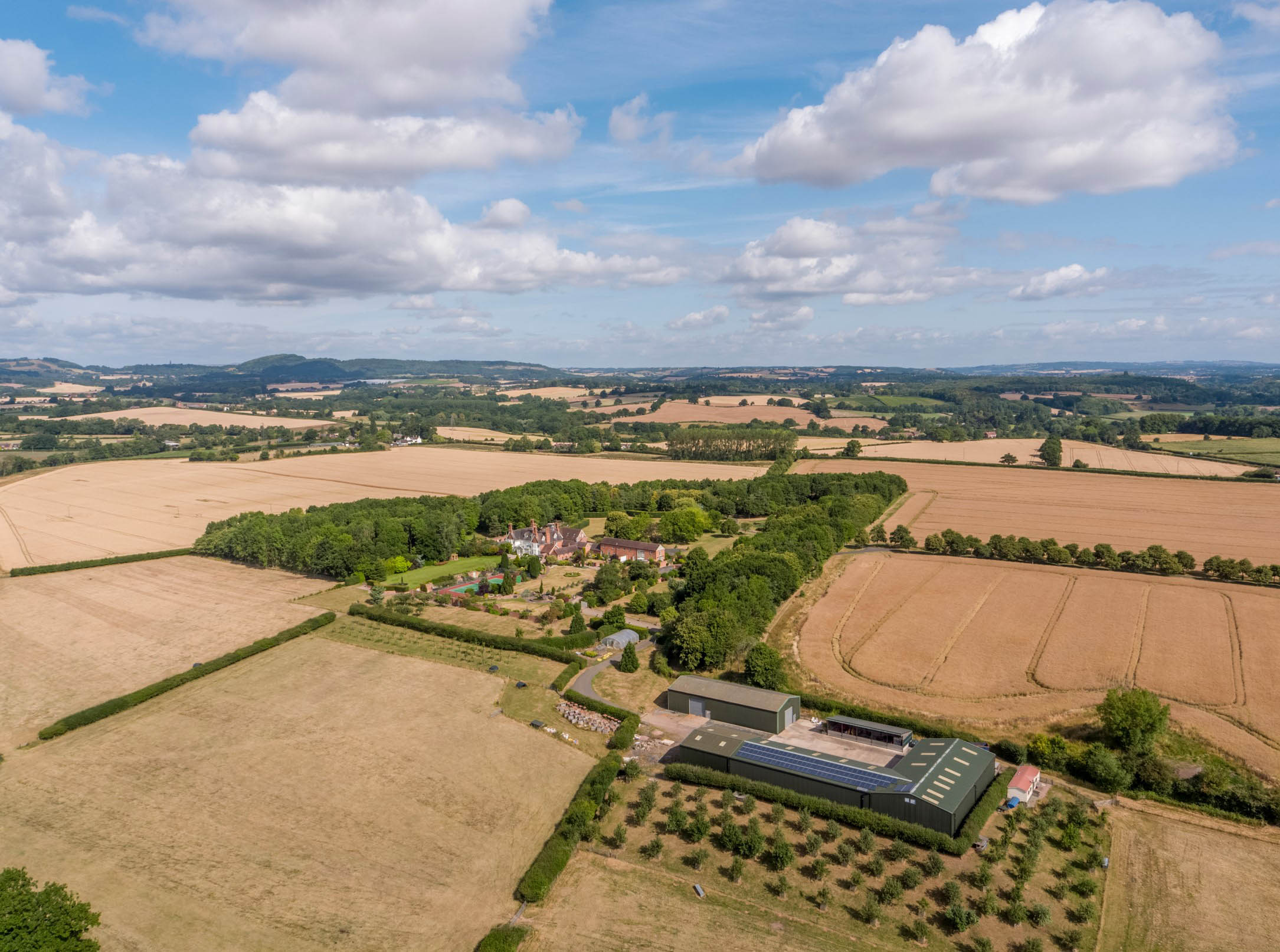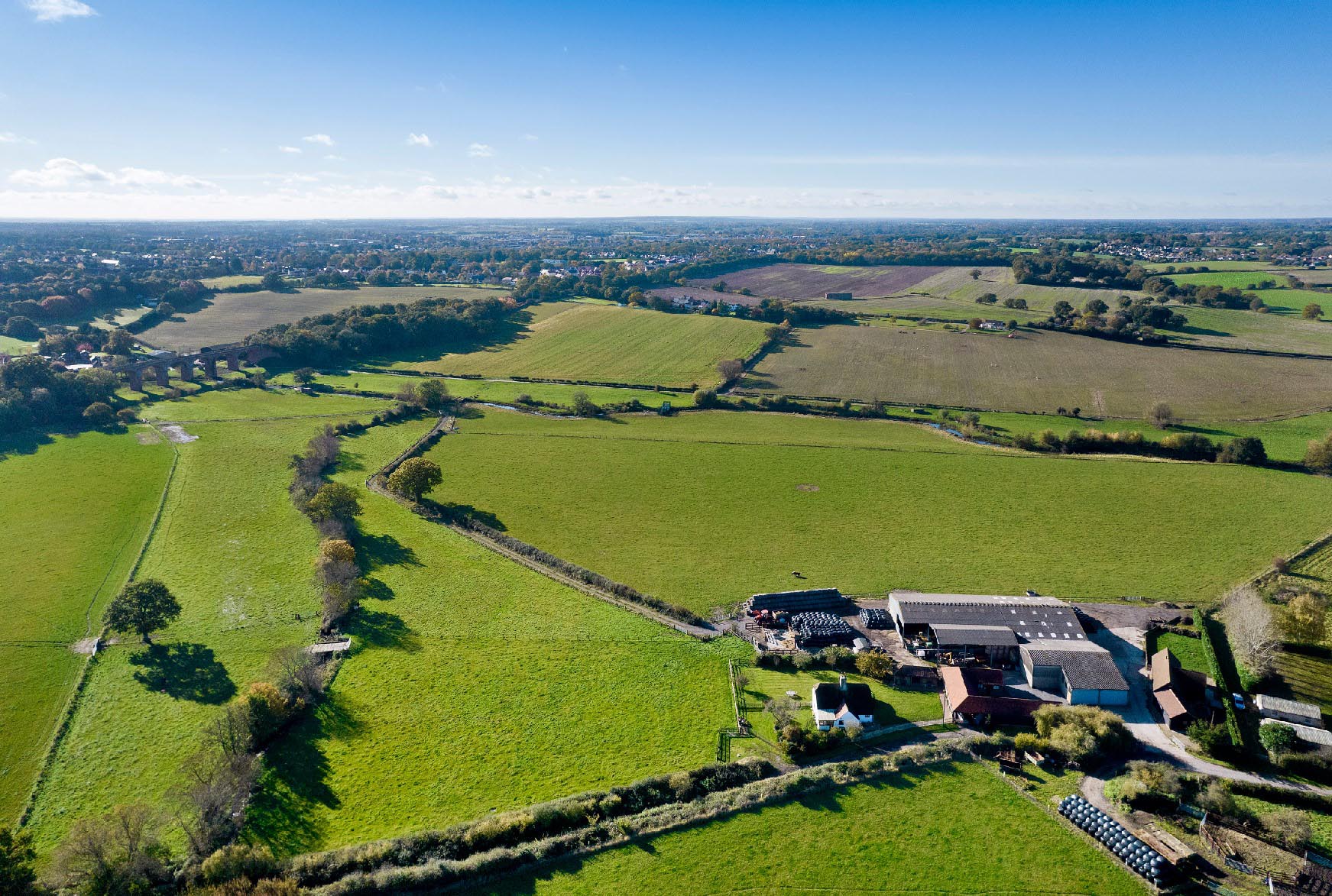UK rural property: Litigation, farming and the environment
The Knight Frank Rural Property and Business Update – Our weekly dose of news, views and insight from the world of farming, food and landownership
12 minutes to read
Opinion
The recent ruling by the European Court of Human Rights regarding Swiss climate change policy (discussed below) will certainly split opinion. Many will see it as huge overreach based on inconclusive science by an international court over the affairs of a sovereign state, others will welcome it as a much-needed step in the battle against climate change. But it does raise interesting questions about the role of the courts in forcing governments to do more to help the environment. For those disgusted by the demonstrably dire state of many the UK rivers, recent ligation via our national courts that holds the government and its quangos to account seems a positive move. But, for many, climate change is still a far less tangible concept than a river full of sewage and such rulings will only heighten their loathing of organisations they view as aloof and unaccountable. What is certain is that the courts will increasingly be used by environmental campaign groups to achieve their aims and farmers and landowners in the UK will surely feel the impact one way or the other.
Do get in touch if we can help you navigate through these interesting times. You can sign up to receive this weekly update directly to your email here.
Andrew Shirley Head of Rural Research
In this week's update:
• Commodities – Lamb holding firm
• Scotland – Land reform details
• Tech and welfare Grants – Deadline approaches
• Hemp – Aim higher
• Treasure trove – It doesn’t have to glitter!
• Onshore renewables – No probs says new report
• Scottish farming – NFUS manifesto
• Climate change – Swiss government sued
• International news – Russian farm seizures
• Green farming – Compost campaign
• Natural capital – Devon in the sun
• New launch – Compact Worcs estate
• New launch – Essex development opportunity
• Farmland prices – 2024 off to a good start
• The Wealth Report – Out now
• Development land – Market stabilises.
• Country houses – 2023 better than expected
• The Rural Report – Watch the videos
Commodity markets
| Commodity |
Week ending 12 April |
Week ending 5 April |
% change |
| Feed Wheat £/t |
168 |
168 |
NC |
| Oilseed Rape £/t |
355 |
360 |
-1.4% |
| Steers R4L p/kg deadweight |
495 |
497 |
-0.4% |
| Lambs R3L p/kg deadweight |
837 |
822 |
+1.8% |
| Pigs APP p/kg deadweight |
211 |
212 |
-0.5% |
| Red diesel p/litre |
81 |
80 |
+1.3% |
Source: Farmers Weekly
Lamb holding firm
Sheep meat prices are holding their ground, despite the passing of peak Easter and end-of-Ramadan consumption. Strong demand from Europe, disruption to southern-hemisphere imports and a drop in the size of the UK flock should ensure prices remain robust. According to Defra, sheep numbers fell over 5% in 2023. The UK’s breeding flock of almost 14 million animals is now the smallest since Defra records began in 1996.
Need to Know
Scotland – Land reform details
Since mentioning the launch of Scotland’s new land reform bill a few weeks ago, I’ve become aware – courtesy of a briefing by Scottish Land & Estates – of a few more details about the legislation’s potential impact and its likely progress through the Scottish Parliament. In addition to the headline-grabbing proposal that any sales of farms and estates over 1,000 acres will need to be notified in advance to the government – in effect removing the ability to market such properties privately – it also transpires that the government wants the power to force disposals to be lotted as it sees fit. Compensation will be available to landowners if this affects the outcome of a sale, but it adds a whole layer of new complexity to disposals. Part sales of 1,000 hectare-plus holdings will also fall under the new rules. On a more positive note, only certain authorities will have the power to report breaches of the proposed management regulations affecting estates over 3,000 hectares. This should avoid a repetition of the surge of anonymous and vexatious claims received since Scotland’s new hate speech law was introduced.
However, Scottish Land & Estates warns that the bill could change markedly – for better or worse – during its passage through parliament, which is not likely to complete until 2030. Of some concern is that the bill is being overseen by the Scottish Parliament’s Net Zero committee, which is largely made up of urban MPs, rather than a rural land use orientated committee.
Tech and welfare Grants – Deadline approaches
Applications for the animal health and welfare tranche of the Defra’s Farming Equipment and Technology fund close on May 1st. Grants of up to £25,000 covering the cost of 50% of a wide range of animal health and welfare items, including stock handling and feeding equipment, are available. For help with this and other grants schemes please contact Henry Clemons.
Hemp – Aim higher
For those looking at alternative cropping options it will soon be easier to grow industrial hemp following changes to the licencing regime. From 2025 the maximum period of a licence will double from three to six years and the crop can be grown anywhere on a farm. The government has also asked the Advisory Council on the Misuse of Drugs (ACMD) to provide advice on whether the THC (the psychoactive compound in cannabis) level permissible in industrial hemp varieties could be safely raised to 0.3%. As the UK summers get hotter and wetter it is becoming increasingly difficult for growers to keep the THC levels below 0.2%. This change would ensure that farmers will not have to destroy their crops due to higher summer temperatures. One hectare of hemp can remove more CO2 from the atmosphere than woodland and it can be used to manufacture all sorts of things. Defra minister Mark Spencer is excited about its future, but so was I when I wrote this article for Farmers Weekly in way back in 2007!
Treasure trove – It doesn’t have to glitter!
It’s always nice to meet followers of the Rural Update, especially when they come bearing gifts. Elizabeth Earle, head of rural knowledge at law firm Farrer & Co, popped by to say hello last week and shared an interesting nugget of information about the UK’s treasure trove laws. Until recently items made from non-precious metals were not generally considered treasure, but to avoid historically important items being lost to the nation the definition now includes metal items that are at least 200 years old and provide “an exceptional insight into an aspect of national or regional history, archaeology or culture” by virtue of their rarity, location or connection with a particular person or event.
Talking points
Onshore renewables – No probs says new report
A new report produced by Exeter University for Friends of the Earth claims that England could easily produce 13 times more electricity from onshore solar and wind schemes than it already is using just 3% of the country’s land. The report identifies 543,000 acres of land it says is suitable for wind turbines and 729,000 acres for solar panels. Including land suitable for both the total comes to about 926,000 acres. Such projects would have the potential to generate 2.5 times England’s domestic energy consumption.
In a bid to placate those worried about food security, Grade 1 and 2 farmland is excluded from the solar calculations (but not for wind as the researchers argue turbines take up limited space and would not materially affect food production), however many of the country’s arable farmers successfully delivering good yields from grade 3 dirt might be a bit miffed their land isn’t classed as “productive”. National parks and other environmentally designated areas are also excluded. Sites are all within 5km of a grid connection, which still sounds quite a distance. Although the 3% headline land-use figure sounds relatively modest, in some areas it is much higher. In the West Riding of Yorkshire, for example, it rises to 7%. View the map to see if your land is on the renewable wish list. Please contact our Renewables team for more advice.
Scottish farming – NFUS manifesto
Prior to this year’s General Election NFU Scotland has just released its list of demands for politicians that it says will ensure Scottish agriculture can meet its full potential. The priorities are:
• Deliver increased, ring-fenced and multi-annual funding
• Improve producer margins to increase food security
• Better access to skilled workers
• Protect domestic food production in future trade deals
• Increase fiscal incentives
NFU Scotland President, Martin Kennedy, said: “Covering over 74% of Scotland, active farming and crofting is key to helping to meet climate and biodiversity needs. High-quality agricultural production is vital to the wider food and drink industry – a sector that’s worth over £16 billion to the Scottish economy and employs over 130,000 people.”
Climate change – Swiss government sued
In a landmark ruling that will send EU and climate change sceptics - and those concerned about judicial overreach in general - into a bit of a frenzy, the European Court of Human Rights last week said Switzerland had “failed to comply with its duties” to combat climate change and meet emissions targets, violating the European Convention on Human Rights. The lawsuit was brought by roughly 2,000 women over the age of 64 who argued they were more vulnerable to extreme heatwaves caused by a warming planet. Even though the case centres around the Swiss government, the ruling establishes a legal precedent for all 46 countries that are part of the Council of Europe. Litigation is increasingly being used by environmental groups to force governments to adopt more nature-friendly policies.
International news – Russian farm seizures
Russia has reportedly seized 650,000 acres controlled by AgroTerra Group, one of the country’s largest farming operations. The decree by President Putin puts the Dutch-registered firm’s investments under the “temporary management” of Rosimushchestvo, Russia’s federal property management agency. In April 2023, Putin signed an executive order allowing Russia to take over real estate, securities, property rights and other assets from foreign companies with ties to “unfriendly countries.” The impact on global food chains and commodity markets is yet to be determined.
Green farming – Compost campaign
The Organic Research Centre has just launched an appeal that will help to restore the six million acres of soil in the UK that it says are facing degradation, threatening our food security and environment. The Feed the Soil campaign will explore organic composting methods to restore soil health and sustainability at farm scale. Any donations from 18 to 24 April will be match funded.
Out and about
Natural capital – Devon in the sun
The sun doesn’t seem to have shined that much this year, but it did make a very welcome appearance during a visit to the Mornacott Estate in Devon, which is part of the growing portfolio of rural properties owned by Oxygen Conservation, one of the UK’s most ambitious and innovative natural capital investors. I was down to take part in the “Shoot Room” series of podcasts, hosted by founder Richard Stockdale and also got a guided tour of the estate. I’ll let you know when the podcast airs, we certainly covered some interesting topics!
Property News
New launch – Compact Worcs estate

This week’s offering from Georgie Veale in our Farm & Estates team is Bentley Court, a 170-acre estate near Worcester that could appeal to anybody looking for a combination of luxury rural living and a manageable ecologically sensitive farming business. A huge amount of effort has been put into improving the estate’s soils and planting a significant number of trees. The 11-bed main house dates from the 1700s and there is secondary accommodation plus a good range of farm buildings. The guide price is £6.25 million.
New launch – Essex development opportunity

Georgie Veale in our Farms & Estates team has just launched an exciting development or diversification opportunity in a strategic location at West Bergholt on the outskirts of Colchester. Bourne Barn Farm is a 200-acre mixed arable and livestock unit that includes a three-bed listed farmhouse, agriculturally tied barn conversion and a range of commercial workshop and office units. The guide price is £3.25 million for the whole.
Our Latest Property Research
The Wealth Report – Out now

The 2024 edition of The Wealth Report, Knight Frank’s leading piece of thought leadership on global wealth and property trends is out now. This instalment of the report includes the latest wealth creation data – spoiler, there are more rich people – and an article by yours truly on global farmland markets and how they are being influenced by ESG and Natural Capital. Download your copy.
Development land – Market stabilises.
Newly released figures from the Knight Frank Residential Land Index show that England greenfield and urban brownfield values were flat in Q4 2023 compared with the previous quarter. Previously, urban brownfield values had fallen by 20% since the most recent peak of the market in the first quarter of 2022 up to Q3 last year, with greenfield down 17% during the same period. Greater economic confidence and a slowdown in the rise of build costs helped underpin values, says my colleague Anna Ward. Read her full report for more numbers and insight.
Farmland prices – 2023 ends on a high
The Q4 2023 instalment of the Knight Frank Farmland Index has now been published. The average value of bare agricultural land rose by 2% in the final quarter of the year to break the £9,000/acre barrier for the first time. Annual growth was 7%, which outperformed a number of other asset classes. Our research suggests values may flatten out this year, but supply remains limited and demand robust. Read the full report for more insight and analysis.
Country houses – 2023 better than expected
Kate Everett-Allen, our international residential research guru, has added the country homes market to her portfolio and has a bit of good news to report. “Prime country house prices declined by 5.8% in 2023. While this figure represented a sizable correction after two stellar years of growth, the rate of decline was lower than our forecast of -7% for the year. A growing sense that mortgage rates are at, or close to their peak, began to influence market sentiment towards the end of the quarter – a theme we expect to build this year. That’s not to say prices and sales volumes will bounce back strongly. Although the Bank of England opted to hold interest rates at 5.25% in December, the cost of borrowing remains at a 15-year high.” Read Kate’s full report.
The Rural Report – Watch the videos!
You've read the book, now watch the videos! To complement the thought-provoking articles contained within the 2023/2024 edition of The Rural Report our whizzy Marketing team has also created a series of videos featuring many of the report's contributors. Head to our very own YouTube channel to discover more about biodiversity net gain and regenerative farming; find out how we are helping Guy Ritchie's Ashcombe Estate on its diversification journey; and read about the travails of an entrepreneurial Zimbabwean searching for a farm for his family. Plus, lots more.